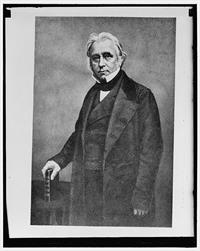
PUMPA - SMART LEARNING
எங்கள் ஆசிரியர்களுடன் 1-ஆன்-1 ஆலோசனை நேரத்தைப் பெறுங்கள். டாப்பர் ஆவதற்கு நாங்கள் பயிற்சி அளிப்போம்
Book Free Demo6. Dissatisfaction (1835-56)
(Scene 1: Macaulay and Bentinck can be seen having a conversation with each other)
Narrator: Education in India was in Persian and Sanskrit. In 1835, a Englishman named Macaulay suggested a change.
Macaulay: We should teach the natives through the English language.
Bentinck: I agree.
(Scene 2: Common people having conversation with each other)
Narrator: English education produced clerks to whom the British gave petty jobs under them. Incidentally, it also produced a new generation of intellectuals.
Indian man 1: We must educate our brothers.
Indian man 2: And try to improve their material conditions.
Indian man 3: For that we must convey our grievances to the British Parliament.
(Scene 3: A Map of India- 1856)
Narrator: By 1856, the British had conquered the whole of India.
(Scene 4: Several people can be seen sitting under a tree and discussing how to drive the Britishers out)
Narrator: They cared little about the needs of Indians.
Man 1: Our kings have become puppets, and we have lost our old jobs.
Man 2: And lands.
Man 3: They are converting, our brothers!
Man 4: You only talk! Do something to drive then out!
Explanation:
Earlier all the teachings of Indians were in the form of Persian and Sanskrit language. Later on, a British officer named Macaulay suggested to Bentinck that the Indians must follow only the English language and so all other Persian and Sanskrit languages to be translated into English. So that the education is thoroughly delivered in their language. The fellow member agreed with the idea of Macaulay.

Thomas Babington Macaulay
The British people taught English to the Indian people who did clerical tasks and administrative duties like answering the phone and typing the documents. By introducing the English language, the Britishers produced a whole new generation of masterminds. A few of the Indians were on the side of Britishers desired that they wanted to improve their peoples' lifestyle by educating them. They tried to strengthen their financial prospects that could lead to a promising future. But they needed to convey this to the British Parliament. Britishers, on the other hand, never cared about the needs of the Indian people.
Later on, the Indians had become more worried about their kings. Several people were sitting under the tree and discussing how to drive the Britishers out. Their Kings were being treated like puppets. They were unable to raise their power against the Britishers.
Later on, the Indians had become more worried about their kings. Several people were sitting under the tree and discussing how to drive the Britishers out. Their Kings were being treated like puppets. They were unable to raise their power against the Britishers.
Meanings of the difficult words:
| S.No | Words | Meanings |
1 | Petty jobs | Small jobs like typing, document writing |
2 | Clerk | A person employed in an office or bank to keep records, accounts, and undertake other routine administrative duties |
3 | Intellectual | A person possessing a highly developed intellect |
4 | Grievance | An official statement of a complaint over something believed to be wrong or unfair |
5 | Puppet | Person, group, or country under the control of another |
Reference:
National Council of Educational Research and Training (2008). Honeydew. Glimpses of the Past-S.D.Sawant(pp. 36-49). Published at the Publication Division by the Secretary, National Council of Educational Research and Training, Sri Aurobindo Marg, New Delhi.